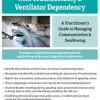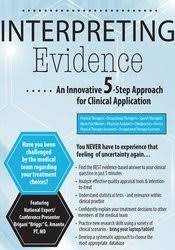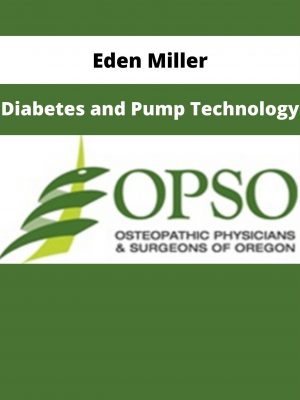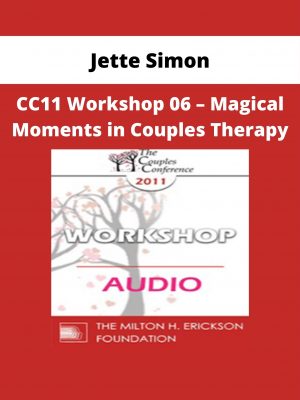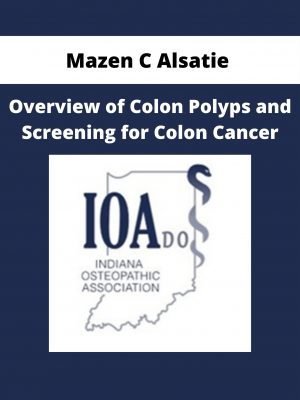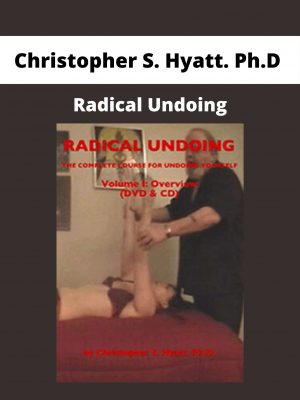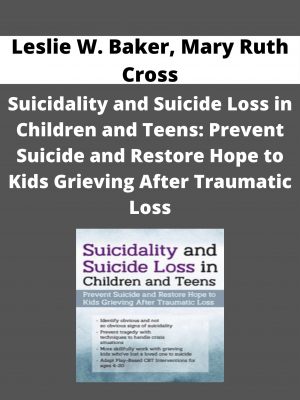Brigani “Briggs” G. Amante – Interpreting Evidence
$219 Original price was: $219.$62Current price is: $62.
Shopping Instructions:
- DISCOUNT 15% : SHOP15
- Product Delivery: Within 1 – 12 hours after purchase.
With a growing body of scientific literature, you face complex challenges in finding and interpreting the appropriate research data in a busy clinical setting.
Brigani “Briggs” G. Amante – Interpreting Evidence
You NEVER have to experience that feeling of uncertainty again…
- Find the BEST evidence-based answer to your clinical question in just 5 minutes
- Analyze effective quality appraisal tools & intention-to-treat
- Understand statistical tests – and relevance within clinical practice
- Confidently explain your treatment decisions to other members of the medical team
- Practice new research skills using a variety of clinical scenarios – bring your laptop/tablet!
- Develop a systematic approach to choose the most appropriate database
With a growing body of scientific literature, you face complex challenges in finding and interpreting the appropriate research data in a busy clinical setting. This one-day course will walk you through a simple, consistent, and efficient 5-step process to effectively locate the best evidence-based answer to a clinical question, in under 10 minutes. Incorporating the best evidence in clinical practice enables cost-effective care, improves reimbursement of treatments provided (especially from Medicare) and, most importantly, leads to the best patient care outcomes. To implement evidence-based practice, you need to have a strategy in place to minimize the time involved in literature searching for clinical questions that arise, so that productivity standards in the workplace can be maintained.
The course accentuates a 5-step methodology of effectively crafting a clinical question, selecting the best database, assessing the applicability of the evidence to the patient, interpreting various statistical tests, and understanding the quality of the evidence. Participants will explore their own research questions within this hands-on workshop. Presenting evidence (but not the best evidence) is not evidence-based practice. This workshop, coupled with clinical scenarios, enhances the applicability of learned concepts that can be immediately useful in your own practice.
OUTLINE
- Clinical Scenario #1: Chronic Knee Pain
- Key Concepts of Evidence-Based Practice
- The 5-Step Approach in Answering a Clinical Question
- Clinical Scenario #2: Right Shoulder Pain
- Quality Appraisal Tools & Intention-to-Treat Analysis
- Understanding Statistical Tests and Relevance in Clinical Care
- Clinical Scenario #3: Exercise & Physical Modalities
- Evidence-Based Screening and Diagnostic Testing in Rehabilitation
- Workshop 1 – Orientation to Therapy-Related Research Databases
- Systematic Approach to Finding Appropriate Databases
- Workshop 2 – Utilizing Research Databases to Answer a Clinical Question
- Finding the Best Answer to your Clinical Question in 5-10 minutes
- Clinical Scenario # 4: Bedside screening of Dysphagia
- Clinical Scenario # 5: Mobilization in Acute Lower Extremity DVT
- Clinical Scenario # 6: Mobilization in Acute Stroke
- Clinical Scenario # 7: Fall Risk Evaluation and Management
- Evidenced Based Rehabilitation – Chronic Kidney Disease and Dialysis
Would you like to receive Brigani “Briggs” G. Amante – Interpreting Evidence ?
OBJECTIVES
- Define the elements of evidence-based practice in the context of patient goals in clinical practice.
- Analyze the rationale behind each step in successfully answering a clinical question with guidance from the available research.
- Determine the best treatment option/s, using the 5 steps, and apply them to achieve excellent patient care.
- Discuss evidence-based approaches for common orthopedic problems, screening for dysphagia, early mobilization in acute stroke, early mobilization in acute deep venous thrombosis, fall risk, chronic kidney disease, & patients on dialysis.
- Practice the five-step approach to answer a clinical question with the best evidence currently available.
- Explain the challenge when adopting a single example from evidence to guide practice.
- Understand statistical tests and the relevance in clinical care.
- Apply quality appraisal tools, including the intention-to-treat analysis.
Related products
HEALTH & MEDICAL
HEALTH & MEDICAL
CC11 Workshop 06 – Magical Moments in Couples Therapy – Jette Simon
HEALTH & MEDICAL
HEALTH & MEDICAL
HEALTH & MEDICAL

